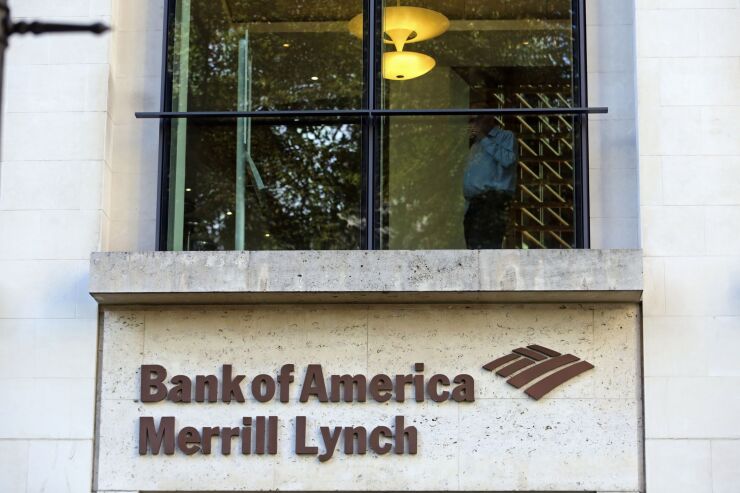Financial advisor and RIA president Marc Horner still remembers raking pennies off his desk at Merrill Lynch after each phone call to a prospect.
“Just so that you've got a goal to get you through the day,” says Horner, who — 21 years ago — was just getting started in the wealth management business in the wirehouse’s training program.
The program was cutthroat, says Horner, who now runs the $725 million RIA Fairhaven Wealth Management in Wheaton, Illinois. About three-quarters of his peers didn’t make it through the first two years, and he remembers doing anything he could to build his book and meet necessary hurdles.
Before he had the experience — and the clients — to garner referrals, that desk phone was a lifeline to starting out, he says.
Two decades later, Merrill Lynch is making moves to redefine its advisor development program — and tighten outreach methods across the whole organization. The wirehouse said May 24 it had restructured the program in hopes of adding support to its novice advisors and diversifying its ranks.
The company also formally said that cold calling was forbidden, a direction it has been moving towards in recent months, particularly as do-not-call lists have posed problems, a Financial Planning investigation
In its new iteration, Merrill Lynch’s advisor development program will be half its former duration, and lean more heavily on referrals from Bank of America, Merrill Lynch president Andy Sieg told reporters May 24. It will also encourage trainees to leverage LinkedIn — and, later on, other social media networks — to source new referrals.
“We will not be engaged in cold calling, across any of our advisors,” Sieg said.
The hurdles set for novice advisors haven't changed, Sieg specified. Trainees will still be expected to gather approximately $15 million in client assets and develop a client base of 20 to 30 clients.
However, the new program will be more centered around coaching and oversight than it has been previously, and will give trainees an “extensive provision of leads and referrals,” he said, specifying that the leads wouldn’t interfere with those going to the existing advisor base.
This would be a deviation from the previous training program, at least as Horner remembers it in 2000. “The whole training thing is laughable,” he says, noting that his class was expected to largely figure out how to build a client base themselves and that trainees needed to be willing “to get outside [their] comfort zone and, in the end, just basically do whatever it takes.”
A Merrill spokesman declined to comment on the matter, but said that Merrill had previously recommended advisors make 45 contacts and conduct 6 meetings per week to meet their growth goals in the program. The success rate of early advisors across the industry has been below 30%, the spokesman said. Overtime, Merrill Lynch will be targeting an 80% graduation rate with its new program.
Documents shed light on how two brokers overseeing trainees allegedly called hundreds of phone numbers on Merrill’s Do Not Call list.
The duration of Merrill’s training has been shortened as well: now 18 months, down from 36, according to Sieg. This will be possible because the majority of trainees will have had client-facing experience in the consumer bank or with Merrill Edge prior to entering the program, according to Sieg.
Eric Schimpf, managing director of Merrill Lynch, and Matt Gellene, head of consumer client management, consumer banking and investments, redesigned the program, according to Sieg. Lydia DiClemente, who has been a regional leader in the company’s consumer investing division, is heading up the program and will report to the two of them, according to the company. Trainees will be operating out of Merrill offices and report to local market executives.
The reworking of the advisor development program follows a
The company hopes changes to the program will mean trainees are less reliant on already having a network of wealthy contacts, and that it will open up the program to a broader — and more diverse — group of individuals.
The trainee workforce at the wirehouse is currently 30% women and more than 33% people of color, Sieg said, its most diverse to-date.







